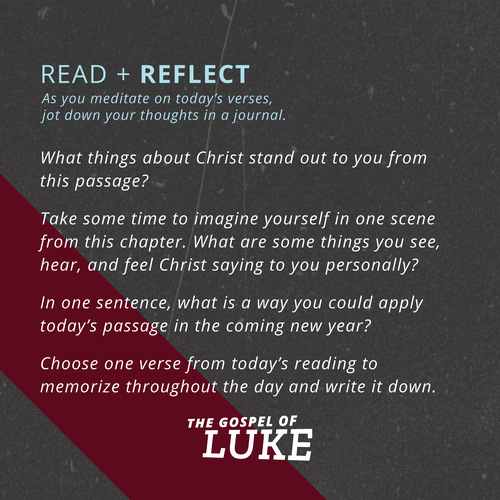John the Baptist is a man whose spotlight in the unfolding of the Gospel story is brief, yet pivotal. Mark, Luke, and John all begin their accounts of the life of Jesus by telling us about a man who appeared on the scene “proclaiming a baptism of repentance for the forgiveness of sins” (Mark 1:4). Why begin with a man who lived in the wilderness, dressed weird, and survived on insects and honey (Matthew 3:4)? Luke’s account of the story reveals to us that John’s God-designed purpose in life was deeply connected to the coming of the Messiah before John was even conceived (Luke 1). When the word of God came to him, he began to preach a message that recalled parameters God himself had given his people - take care of the poor (Deuteronomy 15:7-11), don’t steal (Exodus 20:15), turn away from your sin (2 Chronicles 7:14). It seems that by the time John began preaching to the people, this message was almost counter-cultural. Yet as he spoke, hearts that had grown hard and tired in waiting for the promised Messiah began to soften.
As hope for the promise was renewed, the people began to wonder if this strange prophet could be the one for who they had been waiting; but, John the Baptist was not the Messiah. John knew this and he made sure the people knew it as well. Someone else was coming and coming soon - someone greater than John, someone like they had never seen before who would challenge their expectations and traditions. John knew his role was to clear the overgrowth that had attempted to hide the way of salvation. To put it another way, it was as if he was rolling out the red carpet saying, “Come thou long expected Jesus.” As we now find ourselves awaiting the return of the Messiah, may we be so bold as to follow John’s example. May we proclaim that the forgiver of sins and giver of eternal life is coming for those who love Him. May we clear the way for the lost and broken to find their way to Him.
Read Luke 3 and answer the questions on the left to help you reflect on the passage.

